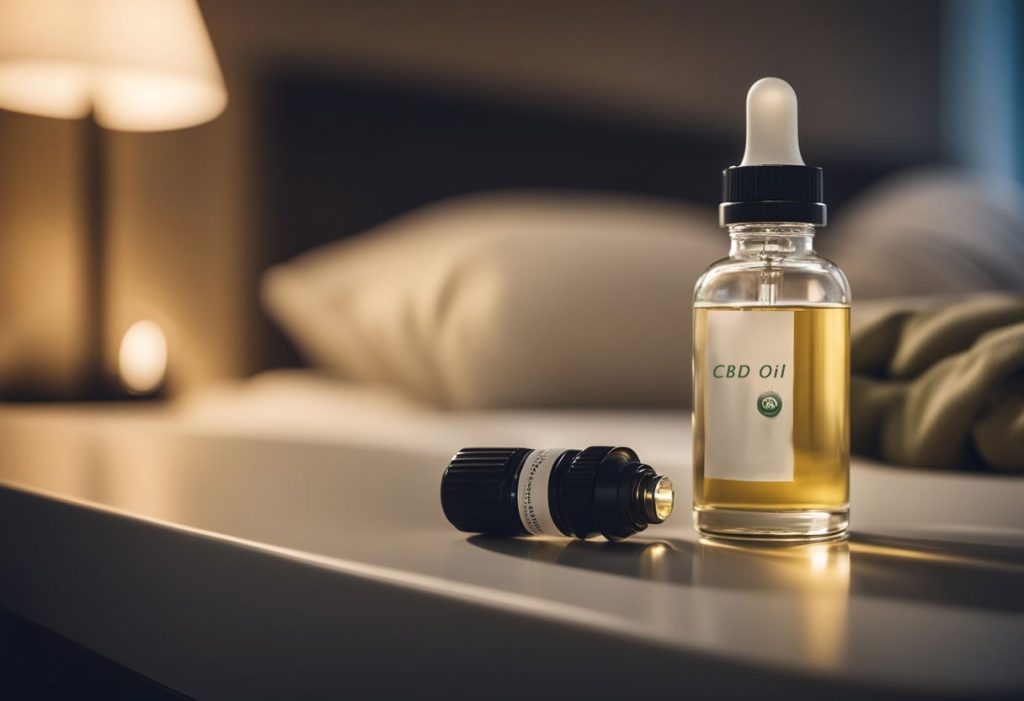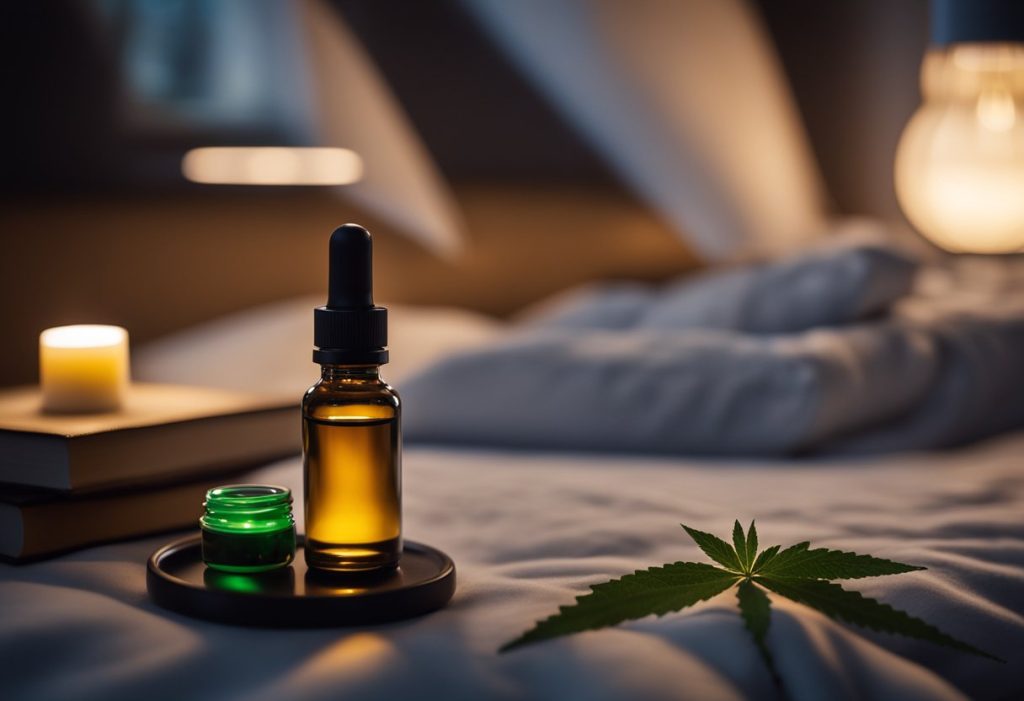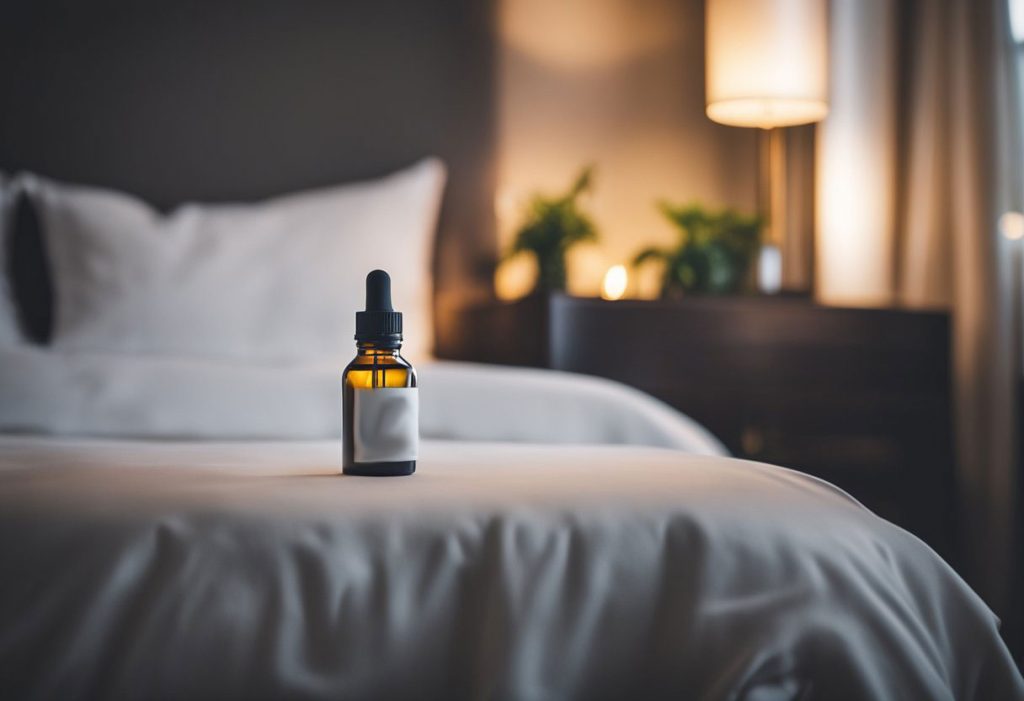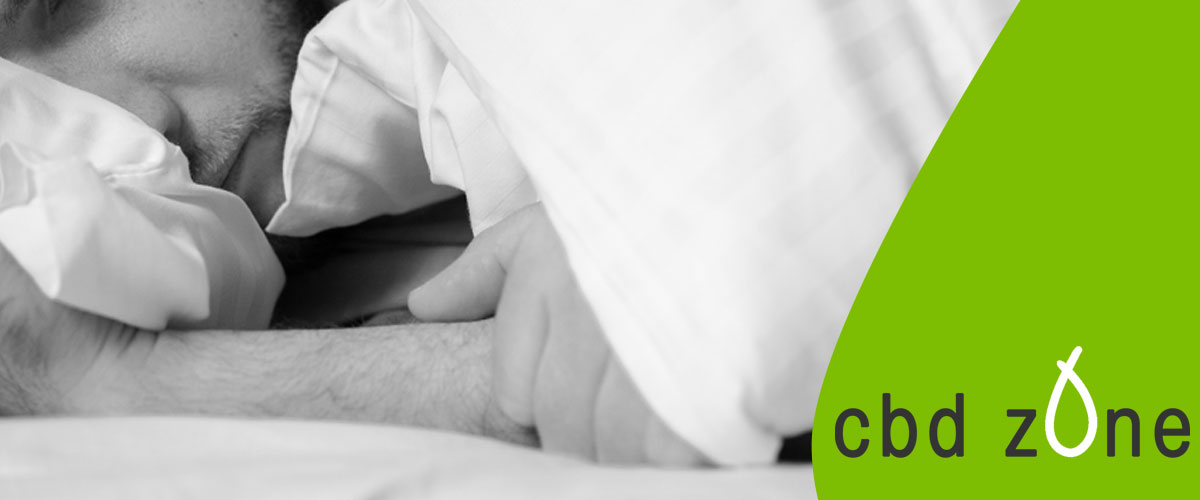In recent years, there has been a growing interest in the potential benefits of cannabidiol (CBD) for enhancing sleep quality. Sleep, a crucial aspect of our overall health, is often neglected, resulting in insufficient rest and detrimental effects on both physical and mental well-being. Various factors can contribute to poor sleep, including stress, illness, and environmental disruptions. This has led many to explore alternative solutions, such as CBD-based remedies, that may help improve sleep patterns.
CBD, a non-psychoactive compound found in the cannabis plant, has gained attention due to its potential therapeutic properties. Some researchers suggest that CBD may interact with the body’s endocannabinoid system, which plays a significant role in regulating sleep-wake cycles and maintaining homeostasis. Consequently, the use of CBD for sleep has become increasingly popular among those looking for natural and potentially effective options to support their sleep needs.
Highlights
- CBD may enhance sleep quality by interacting with the endocannabinoid system
- Various CBD products can be utilized to support sleep health
- It’s crucial to consider potential risks, dosages, and individual factors when using CBD for sleep
Understanding CBD and its Role in Sleep
What Is CBD?
Cannabidiol (CBD) is a natural compound found in Cannabis sativa plants, which include both cannabis and hemp. Unlike tetrahydrocannabinol (THC), its well-known counterpart, CBD is non-intoxicating and does not produce the “high” commonly associated with cannabis use. As a result, CBD is gaining popularity for its potential health benefits, particularly in improving sleep quality.
The Science Of CBD And Sleep
CBD interacts with the endocannabinoid system (ECS), a complex cell-signaling system responsible for regulating various essential functions within the body, including sleep. By modulating the ECS, CBD has the potential to influence sleep-wake cycles, helping users achieve a more restful, rejuvenating sleep.
Key points about the relationship between CBD and sleep include:
- CBD may help reduce insomnia symptoms by addressing common underlying causes, such as anxiety and pain.
- Research has shown that CBD may increase total sleep time and reduce instances of nighttime awakenings.
- CBD could help regulate sleep patterns by interacting with serotonin and adenosine receptors in the brain, which are associated with sleep and relaxation.

CBD vs THC For Sleep
Both CBD and THC, the primary cannabinoids in cannabis, can impart some sleep-related benefits. However, their impact on sleep may differ in significant ways.
Here is a brief comparison between CBD and THC for sleep:
| CBD | THC |
| * Non-intoxicating | * Psychoactive |
| * May promote relaxation and reduce anxiety | * Can cause anxiety or paranoia in some users |
| * Improves sleep quality by addressing root issues like pain | * May provide sedating effects, but could potentially disrupt sleep architecture |
| * Unclear legal status, but generally allowed if derived from hemp | * Legal status varies depending on jurisdiction and source (recreational or medical cannabis) |
When seeking effective sleep aids, consumers should carefully weigh the potential benefits and drawbacks of both CBD and THC. As with any health-related intervention, it is crucial to consult a healthcare professional before incorporating CBD or THC into a sleep-management regimen.
Benefits of Using CBD for Sleep
CBD And Insomnia
CBD, or cannabidiol, is a natural remedy often used for various health issues, including sleep disorders. For those struggling with insomnia, CBD has shown promising results in improving sleep quality. A study found that participants experienced an increase in sleep duration and a reduction in nighttime awakenings when using CBD as a sleep aid. Furthermore, CBD may promote feelings of relaxation, helping individuals fall asleep faster.
CBD For Sleep Disorders
Apart from insomnia, CBD has been researched for other sleep disorders. Those with sleep apnea, for instance, may benefit from CBD’s potential to reduce daytime sleepiness. Additionally, individuals with REM sleep behaviour disorder (RBD) have experienced a reduction in symptoms by incorporating CBD into their nightly routine.
| Sleep Disorder | Possible CBD Benefit |
| Insomnia | Improved sleep duration |
| Sleep Apnea | Reduced daytime grogginess |
| REM Sleep Behaviour Disorder | Decreased symptoms |
Many sleep issues are tied to emotional and mental health, such as anxiety, stress, depression, and PTSD. CBD may help improve these conditions by influencing the body’s serotonin levels, a neurotransmitter crucial for regulating mood and sleep. By easing anxiety and stress, CBD may also help address the root causes of sleep disturbances in some individuals.
In conclusion, using CBD for sleep has shown potential benefits for various sleep-related issues. From improving insomnia symptoms to easing stress and anxiety, incorporating CBD into one’s nightly routine may be worth considering as a natural alternative sleep aid.
How To Use CBD Products For Sleep
Choosing The Right CBD Product
When it comes to CBD products for sleep, the options can be overwhelming. It is essential to find a product that suits your needs and preferences. Some of the popular choices include oils, gummies, capsules, and tinctures:
- CBD oils: Often available in dropper bottles, simply place drops under the tongue, allowing for fast absorption. This method also allows for easy customization of the dose.
- CBD gummies: A tasty and convenient option, CBD gummies can be consumed like regular candy. They come in pre-measured doses and various flavours, making it an enjoyable way to take your CBD for sleep.
- CBD capsules and pills: These are similar to traditional supplements and medications, offering a discreet and straightforward way to get your CBD. As the doses are pre-measured, it’s easy to track your intake.
- CBD bath bombs: These relaxing bath-time favourites contain CBD for an immersive experience. By soaking in a tub with a CBD bath bomb, the body absorbs the CBD through the skin, promoting relaxation and sleep.
Proper Dosing For Sleep
Determining the appropriate dosing for CBD products can vary depending on factors such as body weight, individual sensitivities, and the severity of the sleep issues. Remember, it’s always best to consult with a healthcare professional before starting any new supplement. Here are some general guidelines for selecting the proper CBD dose:
- Low Dose: Start low and go slow. Begin with a low dose of 1-5mg per 4.5kg bodyweight, gradually increasing as needed until the desired effect is achieved.
- Consistency: Establish a routine by using your selected CBD product at the same time each evening. Consistent use ensures more accurate dosing, helps the body adjust to the CBD, and may provide better sleep results.
- Patience: It can take time for your body to respond to CBD — give it a few days or weeks of consistent use before making any adjustments to the dose.
Bear in mind that, while CBD is a natural product, it can still interact with other medications. It’s important to speak with your healthcare provider to discuss any potential interactions, even when using CBD products for sleep.
Potential Risks And Considerations

While CBD may show promise as a sleep aid, it is important to consider the potential risks and side effects associated with its use. This section will briefly discuss the possible side effects of CBD, its interactions with other medications, and the legal and safety concerns surrounding its use.
Side Effects Of CBD
While CBD is generally considered safe for most individuals, there still are some potential side effects to be aware of. According to the Centres for Disease Control and Prevention, common side effects can include:
- Fatigue: CBD may cause drowsiness, making it potentially beneficial for those with sleep issues, but it might also lead to excessive daytime sleepiness in some users.
- Gastrointestinal issues: Some people may experience diarrhea, nausea, or changes in appetite after taking CBD.
- Mood changes: CBD can impact mood, potentially causing irritability or changes in emotional states.
It is essential to start with a low dosage and gradually increase it, monitoring for any adverse effects.
Interactions With Other Medications
Before using CBD as a sleep aid, consider its potential interactions with other medications. CBD may interfere with the way certain over-the-counter and prescription drugs are metabolized by the liver, altering their efficacy and potentially leading to adverse effects. Those taking medications should consult with a healthcare professional before starting CBD.
Moreover, it is crucial to avoid combining CBD with sedatives or other sleep aids, as it may amplify their effects, increasing the risk of drowsiness, dizziness, and impaired coordination.
Legal And Safety Concerns
Despite the 2018 Farm Bill legalizing hemp-derived CBD products in Canada, there remain legal and safety concerns surrounding their use. As the market is not heavily regulated, some over-the-counter CBD products may be contaminated with harmful substances like heavy metals, pesticides, or residual solvents. To minimize this risk, consumers should look for products that have undergone third-party testing and are certified by reputable organizations.
In terms of legal concerns, while hemp-derived CBD is permitted under federal law, it remains subject to provincial and territorial regulations governing its sale and use. Consumers should familiarize themselves with the specific rules in their area to ensure they are using CBD products responsibly and legally.
Lastly, it is important to remember that the FDA has only approved one CBD-based medication for treating specific seizure disorders. Using CBD as a sleep aid is considered an off-label application, which means further research and clinical trials are necessary to fully understand the risks and benefits.
Lifestyle And Behavioral Factors
In this section, we will explore the impact of lifestyle and behavioral factors on sleep quality, and highlight some methods that can lead to a more restful night’s sleep.
Improving Sleep Hygiene
Achieving good sleep hygiene is crucial to combat fatigue and improve memory. It involves creating a consistent sleep schedule, maintaining a comfortable sleep environment, and adopting daily habits that promote relaxation before bedtime.
- Exercise – Engaging in regular physical activity during the day can help reduce stress and cortisol levels, leading to better sleep at night. However, avoid intense workouts close to bedtime as they may keep you awake.
- Diet – Consuming a balanced diet rich in nutrients and avoiding heavy meals, caffeine, and alcohol close to bedtime can contribute to a better sleep cycle.
- Relaxation Techniques – Adopt practices such as deep breathing, yoga, or meditation to calm the mind and prepare the body for sleep.
Natural Alternatives And Supplements
For individuals seeking natural solutions to improve their sleep quality, certain alternatives and supplements can be considered:
- Melatonin: This hormone, produced naturally by the body, regulates the sleep-wake cycle. Melatonin supplements are a popular choice for those struggling to fall asleep or experiencing jet lag.
- Natural Sleep Aids: Various herbs and plants, such as valerian root, passionflower, and chamomile, have been used as natural sleep aids for centuries. These can be consumed as teas, tinctures, or in capsule form.
| Natural Sleep Aid | Potential Benefits |
| Valerian Root | Reduces anxiety and promotes relaxation |
| Passionflower | Enhances GABA levels in the brain, leading to a calming effect |
| Chamomile | Has mild sedative properties, helping in relaxation and inducing sleep |
In addition to these methods, individuals with more severe sleep issues, such as REM sleep behavior disorder, may benefit from behavioral therapy. Cognitive-behavioral therapy for insomnia (CBT-I) is a specific type of therapy that focuses on addressing the thoughts and actions that affect one’s ability to sleep well.
Remember to consult a healthcare professional before using any new supplements or natural sleep aids, as they may have potential side effects or interact with medications. Experimenting with these lifestyle modifications and natural alternatives may ultimately lead to better sleep hygiene and improved overall sleep quality.

Frequently Asked Questions
What are the benefits of full-spectrum CBD over broad-spectrum when it comes to sleep aid?
Full-spectrum CBD contains all the naturally occurring compounds found in the cannabis plant, including trace amounts of THC (less than 0.3%) and other cannabinoids, terpenes, and flavonoids. These compounds work together synergistically through a phenomenon known as the “entourage effect,” which is believed to improve the potential therapeutic benefits of CBD.
When it comes to sleep aid, full-spectrum CBD may be more effective for some individuals due to this entourage effect, which can contribute to relaxation, calmness, and a deeper night’s sleep. On the other hand, broad-spectrum CBD contains all the compounds except for THC. Some people prefer broad-spectrum CBD if they want to avoid any exposure to THC or if they are sensitive to its psychoactive effects.
How many milligrams of CBD are commonly recommended for improving sleep quality?
The optimal dosage of CBD for improving sleep quality can vary greatly depending on individual factors such as body weight, metabolism, and specific sleep concerns. In general, a common starting point is between 15 to 30 milligrams of CBD per night, but it’s important to consult with a healthcare professional or experiment with dosages to find the amount best suited for your needs. Remember to start low and gradually increase the dosage until you achieve the desired effects.
Can using CBD oil have an impact on the REM sleep cycle?
Preliminary research suggests that CBD may have an impact on REM (Rapid Eye Movement) sleep, the stage of sleep where dreaming occurs. Some studies have shown that CBD can potentially suppress REM sleep, leading to more non-REM or deep sleep. This could be beneficial for individuals who suffer from REM sleep behaviour disorder or other conditions that affect REM sleep. However, more research is needed to fully understand the relationship between CBD and the REM sleep cycle.
Are there any contraindications when taking CBD with other medications?
CBD can interact with certain medications, either by inhibiting or enhancing their effects. Some common medications that may interact with CBD include blood thinners, anti-inflammatory drugs, and medications that are metabolized by the liver. It’s crucial to consult with a healthcare professional before using CBD if you are currently taking any medications or have pre-existing health conditions.
For beginners, what is the advised starting dosage of CBD to help with sleep?
For those who are new to using CBD for sleep, it’s generally advised to start with a low dosage and gradually increase over time. A common starting dose is 5 to 10 milligrams of CBD per night. By starting with a low dosage, individuals can gauge their body’s tolerance and response to CBD before increasing to find the optimal amount for their sleep needs.
Does CBD contribute to a feeling of being ‘spacey’ or mentally unfocused?
CBD is non-psychoactive, which means it does not produce the “high” or feeling of being mentally unfocused often associated with THC. Although CBD can promote relaxation and calmness, it does not typically cause a spacey or impaired feeling. Some individuals may experience mild side effects such as drowsiness or lightheadedness, but these effects are usually temporary and can be managed by adjusting the dosage or timing of consumption.

